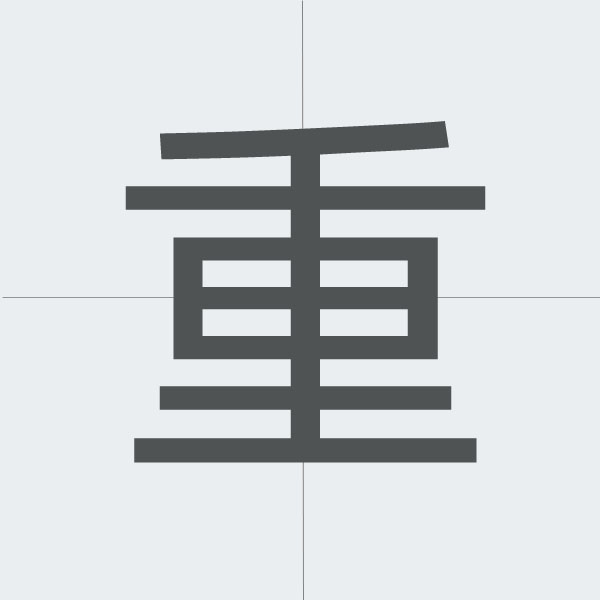
The Kanji: 重 (Jū / Chō / Omo / Kasa)
The kanji 重 means "heavy," "important," or "to pile up." It depicts a person (人) carrying a heavy bundle, representing burden and accumulation. This character describes both physical weight and significance.
Common Words & Example Sentences
1. 重い (omoi) - Heavy
この荷物は重い。
"This luggage is heavy."
2. 重要 (jūyō) - Important
重要な書類をなくした。
"I lost an important document."
3. 体重 (taijū) - Body weight
体重を測る。
"Measure body weight."
4. 重ねる (kasaneru) - To pile up
本を重ねる。
"Stack books."
In summary, 重 describes physical weight (重い, 体重), significance (重要), and accumulation (重ねる). It connects the concepts of burden, value, and layering in Japanese.